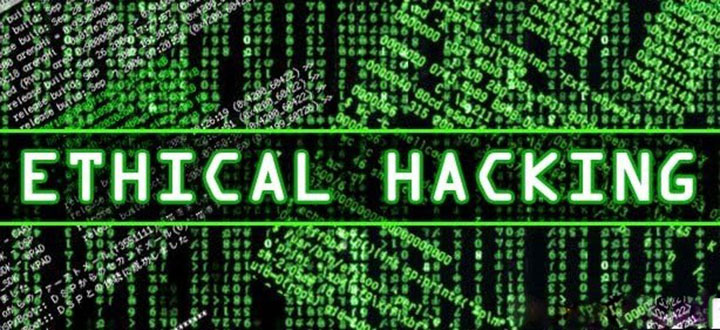IT security has become an important aspect of web hosting and management in recent years. This has been necessitated by the growing number of black hat hackers exploiting the vulnerabilities in a website for their own ill-motivated purposes. The main difference between black hat hackers and white hat (ethical) hackers lies in the intentions and reasons for hacking. While ethical hackers use similar techniques and methods as those used by black hat hackers, they do not manipulate or take advantage of vulnerabilities found like black hat hackers. When network security measures are not properly enhanced and empowered, they fall apart thereby creating loopholes and vulnerabilities that black hat hackers can manipulate. Destructive hacking leads to crimes such as identity theft, data fraud, and cyber terrorism; all of which can result in great losses and other damages to internet users.

Defining Ethical Hacking
Ethical hacking is simply the legal and authorized act of hacking into a website or online platform. Every day, there are more and more businesses and organizations that are targeted in cyber-attacks. As such, organizations use the services of white hat hackers to determine if their IT security parameters are efficient in protecting vital networks in the systems from malicious hacking. With the rise of cyber-attacks, ethical hacking has proved to be a powerful strategy for protecting the network security of an organization’s’ system. It is worth noting that even with the best security protocols and unique information encryption techniques, hackers can still find a way to hack into a system and steal data. This is why organizations hire ethical hacking experts to hack and find the vulnerabilities and loopholes in the system with the intention of upgrading the security parameters to make it impossible for hackers to infiltrate the systems.

How is Ethical Hacking carried out?
Ethical hackers are pro coders with the capability of completely immersing themselves into any computer security network. Just like in black hat hacking, ethical hackers use the loopholes in the security parameters to undertake penetration tests that are used for determining the strength and capability of IT & network security parameters in a system. These tests take months to develop and use high-level expertise and skill to make them as sophisticated as they can be. Ethical hacking aims at providing a response to threats made to cyber security by malicious hackers. Ideally, white hat hacking is a preventive measure undertaken to enhance cyber security, thereby improving the defense set up by organizations as well as their systems.

What Makes a Good Ethical Hacker?
As with other professions, passion is a key aspect of success in ethical hacking. In addition to this, for an ethical hacker to be good at his/her work, there is also the need to have a vast knowledge of programming and networking. What’s more important about being a good hacker is that experience with different IT security systems is crucial in understanding how these systems work. Apart from undertaking penetration tests to identify the strength of security parameters in a system, these hackers are also tasked with scanning ports to identify existing vulnerabilities in open ports in a system. This makes it easy for remedial measures to be taken towards improving the security of ports. Additionally, these hackers examine patch installations for purposes of ensuring that the installations cannot be exploited, thereby weakening the security of a system.

The Role of White Hat Hacking in IT & Network Security
Since ethical hacking helps in identifying the loopholes and vulnerabilities that exist in the IT & Network Security systems of an organization, it helps in improving that organization’s security infrastructure. Organizations that have internet network connections or provide online services should prioritize on taking regular penetration tests as such organizations are great targets of cyber attacks. Ethical hackers spend countless hours and use intense brain power in discovering bugs in systems. When left unattended to, these bugs can cripple the operations of an organization or cause vast internet fraud by allowing access to details of unsuspecting users.
Ethical hackers have gained mainstream acceptance in the recent past following the endorsement of the profession by giant tech companies like Facebook, Google, and Microsoft among other large corporations. This acceptance has made it easy to understand the altruistic mindset of white hat hackers. Ethical hackers require keeping up-to-date with the emerging trends in IT security so that they are able to stay ahead of black hat hackers at all times.
Sourced from: searchsecurity
Featured Image: Thinkstock/BÅażej Åyjak









